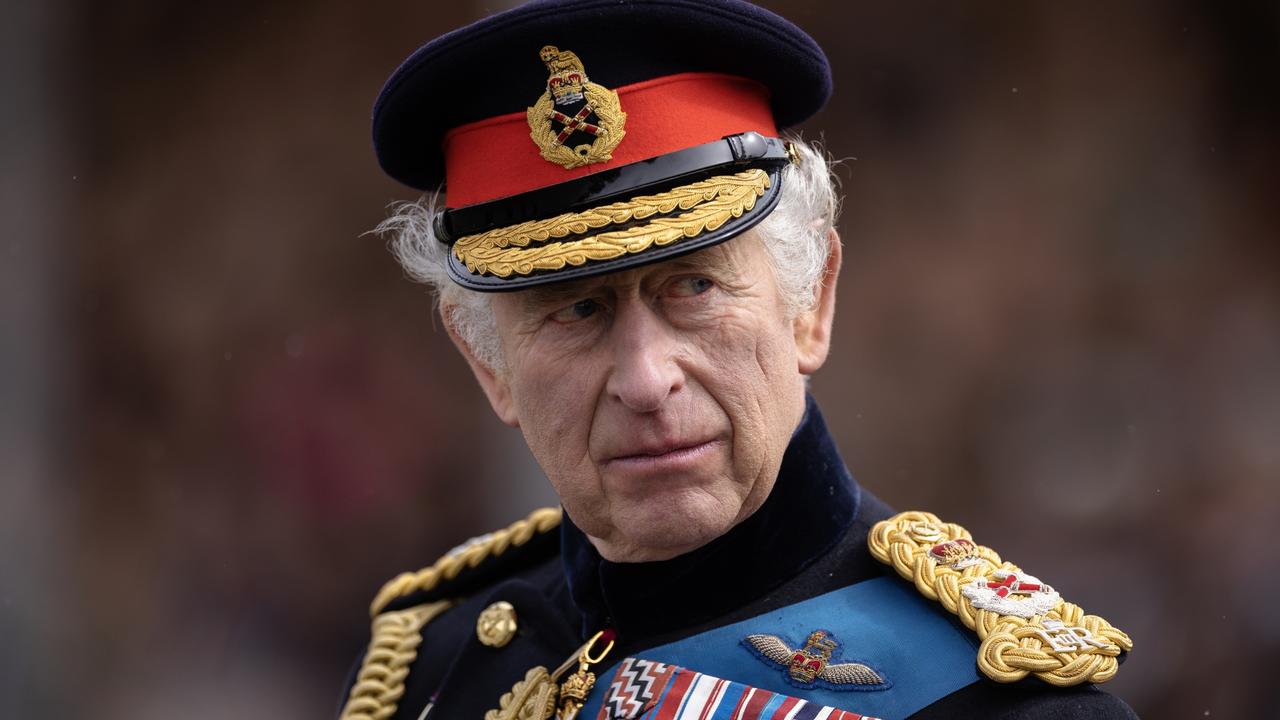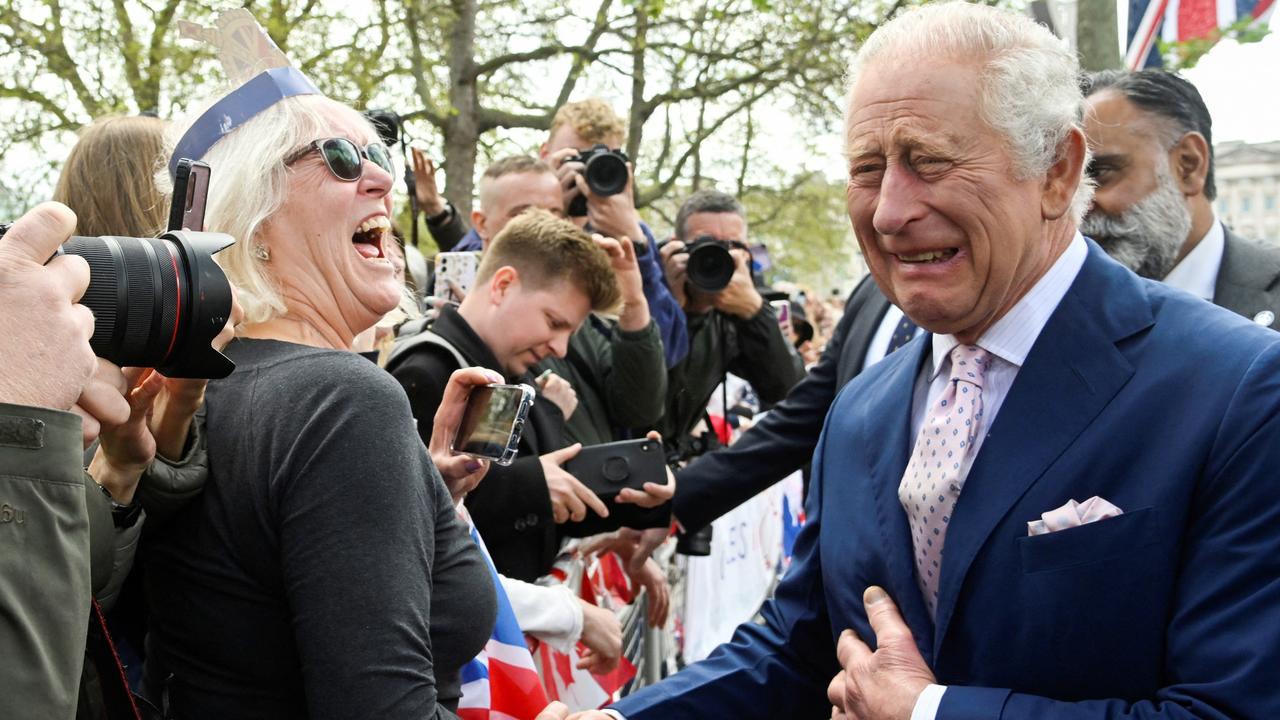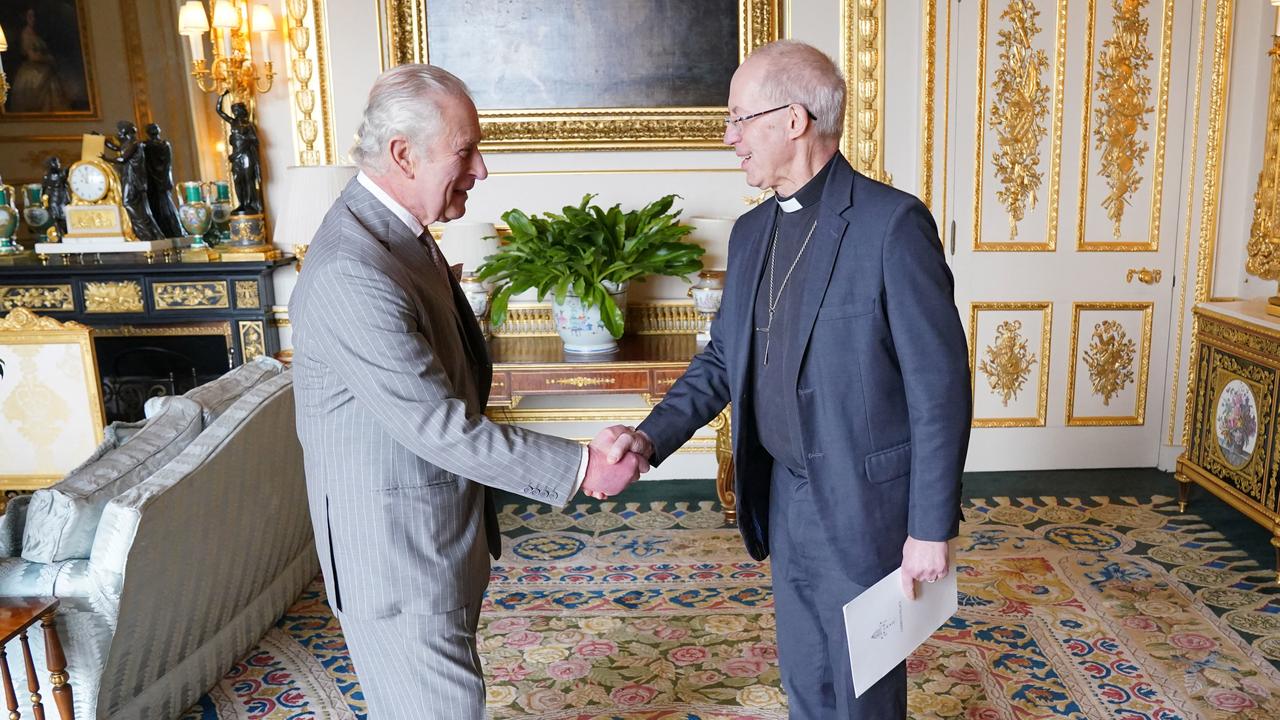Public backlash prompts late change to King Charles’ coronation service
There has been a late change to the coronation service after a history-making decision was dubbed “odd” and “tone deaf”.

There has been a late change to the coronation service following public backlash.
King Charles III will be officially crowned during his coronation ceremony in London on Saturday evening (AEST), following months of preparations. The date was officially announced by Buckingham Palace almost six months ago.
But it is understood a subtle late change was made to the service after the decision to ask the public to swear allegiance to King Charles at the coronation was dubbed “odd” and “tone deaf”.
It was announced last weekend that for the first time in history, the Archbishop of Canterbury, Justin Welby, would invite citizens across the Commonwealth to take part in the coronation service from their homes by pledging an oath to the new monarch in a formality named the ‘Homage of the People’.
It would replace the traditional ‘Homage of Peers’, where a line of hereditary peers would kneel and pledge allegiance in Westminster Abbey.

Archbishop Welby was scheduled to introduce the homage by saying: “I call upon all persons of goodwill in The United Kingdom of Great Britain and Northern Ireland, and of the other Realms and the Territories to make their homage, in heart and voice, to their undoubted King, defender of all.”
In response, people watching the ceremony from their homes around the world have been asked to say the words: “I swear that I will pay true allegiance to Your Majesty, and to your heirs and successors according to law – so help me God.”
That ‘Homage of the People’ which has been widely criticised has been altered.
— Chris Ship (@chrisshipitv) May 6, 2023
BEFORE @JustinWelby due to say: “I call upon persons…to make their homage in heart and voiceâ€.
NOW: “I now invite those who wish to offer their support to do so with a moment of private reflectionâ€. pic.twitter.com/eoAwDq4GAh
According to British royal editors, Archbishop Welby’s words have now been altered to make clear the pledge of allegiance is optional.
“I now invite those who wish to offer their support to do so, with a moment of private reflection, by joining in saying ‘God save King Charles’ at the end, or, for those with the words before them, to recite them in full,” he will now say instead.
Following the widespread backlash, Lambeth Palace – the official residence of the Archbishop of Canterbury – and Archbishop Welby himself clarified the homage was an “invitation”, not an order.
However, it appears it was decided those efforts were not enough and an actual change to the words used in the service was needed.
In a statement a spokesperson for Lambeth Palace said the homage was an “exciting” change and the hope was that people across the world will say it out loud – “this sense of a great cry around the nation and around the world of support for the King.”
Archbishop Welby told BBC: “It’s an invitation – so if you want to join in at this point, by all means do so.
“If you don’t want to, that’s fine. There’s no drama to it.”

While the ‘Homage of the People’ was reportedly decided upon between the King, the Archbishop Welby and the UK government, British broadcast Jonathan Dimbleby, who is a long-time close friend of King Charles, claimed the monarch would find the idea “abhorrent”.
“I can think of nothing that he would find more abhorrent,” he told BBC Radio 4.
“He’s never wanted to be revered. He’s never wanted, so far as I know, to have anyone pay homage to him except in mock terms as a joke.
“He wants, I think, to feel that people will share in the event.”
Mr Dimbleby said asking the public to swear allegiance to the King during the coronation ceremony was “well intentioned and rather ill-advised”.
He also added that asking or expecting homage was “so different from the King that I know”.






